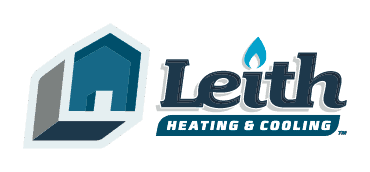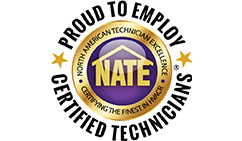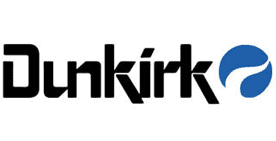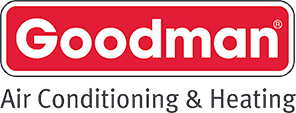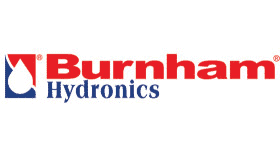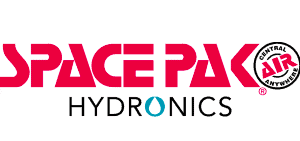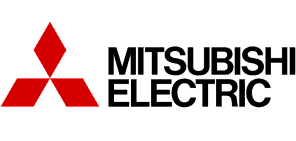Do you have an overheating air conditioner? Call Leith Heating & Cooling at (847) 860-7092 for fast and efficient repairs.
During the summer months in Illinois, temperatures reach as high as 90 degrees Fahrenheit. Many people rely a great deal on their air conditioners during this time.
Do these systems ever get overwhelmed by the temperature? Can AC units overheat?
As Carol Stream’s air conditioning repair experts, we can authoritatively tell you that air conditioners can overheat. We cover all the details in this post.
What Happens When Your AC Unit Overheats?
Overheating occurs when the air conditioner’s key components are not in the best shape. Once the system overheats, it will trip your circuit breaker.
If you reset the circuit breaker and turn on the air conditioner again without fixing the underlying problem, the process will repeat continually until the air conditioner breaks down completely. In worst-case scenarios, overheating can trigger an electrical fire in your home.
What Are the Causes of AC Overheating?
Some of the key reasons for an air conditioner overheating include:
Dirty Fan Blades
The fan in your air conditioner draws air into the unit. It relies on the fan motor to move. When the fan blades are too dirty, the power from the motor may not be enough to conveniently move the fan.
The resulting friction will cause the motor to overheat.
Refrigerant Leaks
The refrigerant plays a huge role in transferring out warm air from your home and bringing cool air back in. Your air conditioner needs to have the right level of refrigerant to work efficiently.
If you have refrigerant leaks, your air conditioner will need to work too hard to reach your desired temperature. Depending on the leak severity, the air conditioner might overheat long before it can reach your desired temperature.
Aged Components
Modern air conditioners are highly durable, but they don’t last forever. If your air conditioner is already more than ten years old, there’s a high chance that the components are on their last legs.
Can AC units overheat even with the old components are still working? Yes, they can. There’s a higher tendency for overheating when you’re driving your air conditioner hard in the summer weather if most of the parts have already seen their best years.
Frozen or Dirty Condenser Coils
The condenser coils in your air conditioner help in the heat absorption and transfer process. If the coils are frozen or dirty, your air conditioner will run longer cycles to bring your home to your desired temperatures.
When the unit is running far longer cycles than the manufacturers intended, overheating will follow.
Dirty Air Filter
The air filters in your air conditioner help keep your indoor air contaminant and allergen-free. However, heavily clogged filters mean that the air conditioner can’t push out enough conditioned air into your home.
The clog can alter the cooling cycle in several ways, including causing the system to overheat and shut down.
How Can You Stop Your Air Conditioner From Overheating?
If there’s only one thing you can do to stop your air conditioner from overheating, it’s to schedule pre-summer maintenance checks every year.
Your HVAC technician will arrive just before the summer weather kicks in to ensure your air conditioner is in the right shape for the task of keeping your home cool for the next few months. Some of the things they will do during the visit include:
Checking the Refrigerant Level
As we covered above, your air conditioner can’t work effectively if the refrigerant isn’t at the right level. The HVAC technician will examine your coils to check for leaks and then top off the refrigerant to bring it back to normal.
A qualified HVAC technician will never add refrigerant without identifying the leak source first. Also, they’ll always ensure they are using the right type of refrigerant for the unit.
You should also keep in mind that you can’t legally handle refrigerant if you’re not licensed. So don’t entertain the idea of recharging your refrigerant on your own.
Cleaning Dirty Components
If your coils have accumulated a lot of dirt and debris, the HVAC technician will recommend a thorough cleaning. The coil cleaning process is fairly straightforward. It involves spraying down the coils with a cleaning solution and gently brushing away the resulting slime before rinsing.
Coil cleaning is another part of AC maintenance that DIY enthusiasts always want to attempt, most times to disastrous results. If you choose to go down this route, be sure you have the tools to safely reach the coils.
Also, don’t point your pressure washer at the system. The water pressure will almost certainly damage your coils. A spray bottle containing the cleaning solution and a light brush are enough to get the job done.
Replacing the AC Filter
If your air conditioner has dirty replaceable filters, the technician will swap them out with matching replacements. For units that have reusable filters, the technician will thoroughly clean out all dust, debris, and accumulated contaminants before reinstalling them.
Checking the Electrical Components
Damaged electrical components and problems with the electrical connection to your air conditioner can cause it to overheat.
Therefore, the HVAC technician will inspect the capacitor, the compressor, and the electrical connection to the mains to ensure there are no frayed wires or similar that can trigger the circuit breaker.
Schedule Professional Air Conditioner Maintenance Today
If you want to avoid air conditioner problems during the summer, it’s important to book a maintenance session to ensure it’s in excellent shape.
With yearly maintenance, your air conditioner will meet your cooling needs without using up too much energy and wearing out built-in components.
Can AC units overheat even with regular air conditioner maintenance? It’s possible but highly unlikely if you work with a highly experienced maintenance team.
Call our team at Leith Heating & Cooling today at (847) 860-7092 to book an appointment. We’ll be there for you when your AC goes out in the summer, but we can also help you prevent it!
